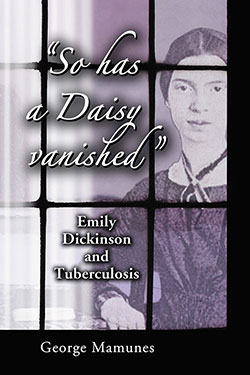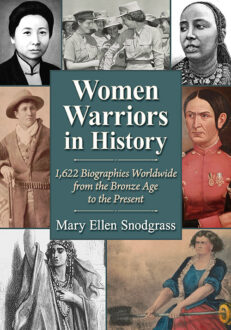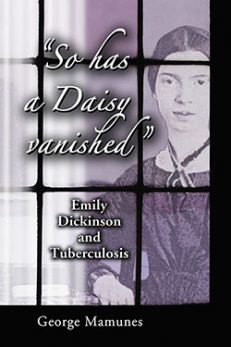“So has a Daisy vanished”
Emily Dickinson and Tuberculosis
$39.95
In stock
About the Book
This work places Emily Dickinson’s poetry in a new setting, examining the many ways in which Dickinson’s literary style was affected by her experiences with tuberculosis and her growing fear of contracting the disease. The author gives an in-depth discussion on 73 of Dickinson’s poems, providing readers with a fresh perspective on issues that have long plagued Dickinson biographers, including her notoriously shut-in lifestyle, her complicated relationship with the tuberculosis-stricken Benjamin Franklin Newton, and the possible real-life inspirations for her “terror since September.”
About the Author(s)
Bibliographic Details
George Mamunes
Format: softcover (6 x 9)
Pages: 211
Bibliographic Info: appendices, notes, bibliography, index
Copyright Date: 2008
pISBN: 978-0-7864-3227-1
Imprint: McFarland
Table of Contents
Acknowledgments vii
Introduction 1
1. The Omitted Center 5
2. Dread Disease 22
3. Impenitence 41
4. Ben Newton 56
5. First Love 80
6. Spirit-Bride 100
7. Queen Recluse 110
8. Terror 128
9. Afterlife 148
Appendix A: Novel Excerpts 161
Appendix B: List of Poems 171
Chapter Notes 175
Bibliography 185
Index 193
Book Reviews & Awards
- “Groundbreaking…well researched and carefully documented, this book is a compelling study of a widespread and dreaded disease that haunted the lives of Dickinson and her contemporaries.”—Emily Dickinson International Society Bulletin
- “Opens up for readers a rich lode of information and insight, not only about Dickinson’s health but also about her relationship to other writers and about the role of chronic disease in nineteenth-century American culture.”—Mary Loeffelholz, author of Dickinson and the Boundaries of Feminist Theory and From School to Salon: Reading Nineteenth-Century American Women’s Poetry
- “Mamunes argues convincingly…in a book filled with haunting stories, Mamunes draws evidence from medical records, Amherst archives, popular fiction, and even Benjamin Newton’s probate records to cast fresh perspective on Dickinson’s explosive artistic achievement.”—Jane Donahue Eberwein, author of Dickinson: Strategies of Limitation and editor of An Emily Dickinson Encyclopedia





